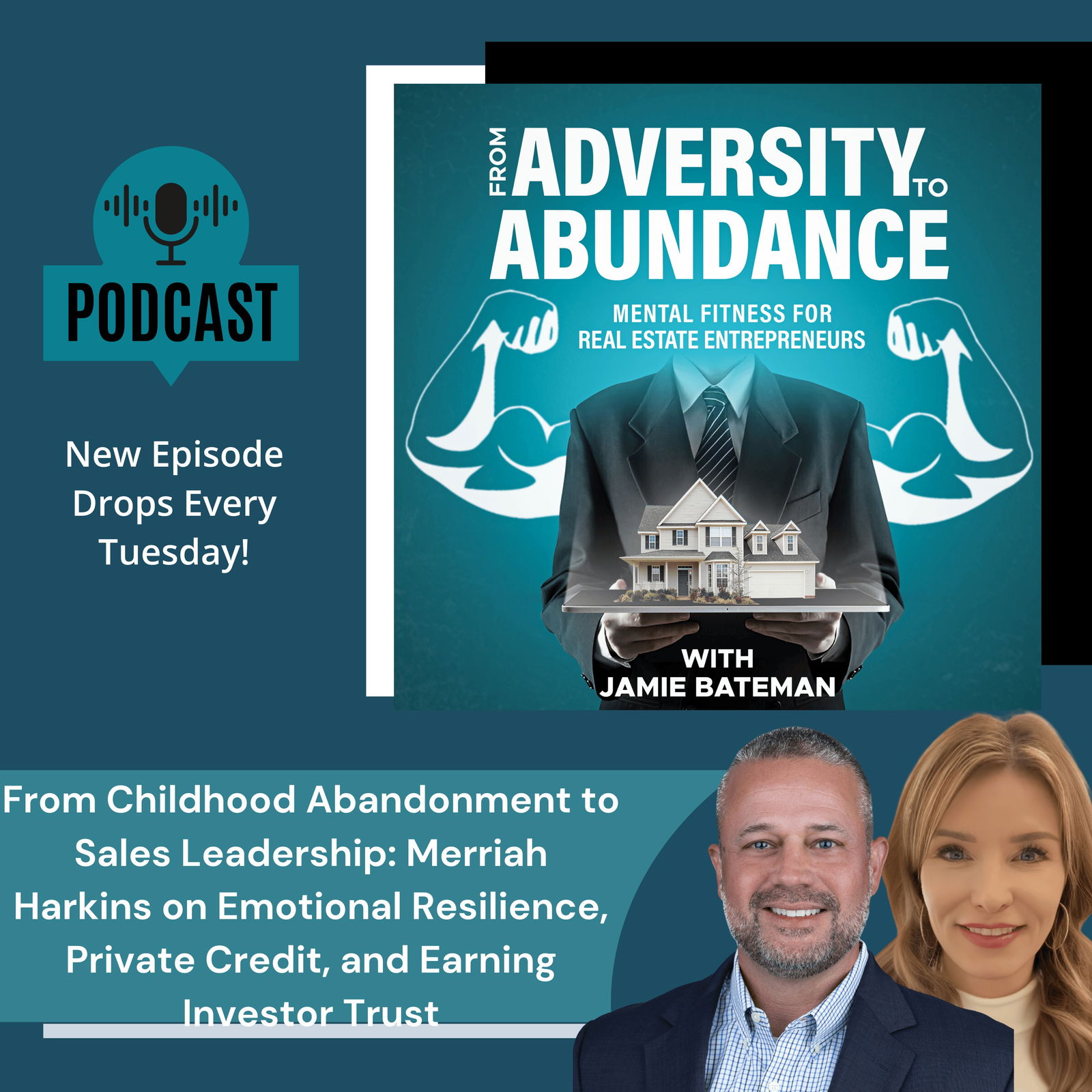In this episode of From Adversity to Abundance, host Jamie Bateman speaks with Merriah Harkins, Senior Sales Officer at Lukrom, a private investment firm with a focus on private credit. While Merriah has built a powerhouse career in sales and investor relations—with over 25 years of experience driving revenue and client retention—her professional strength is rooted in deeply personal adversity.
At just four years old, Merriah’s mother abandoned her family, leading to an unconventional upbringing in a boarding school without the traditional presence of either parent. This early trauma shaped her worldview, her emotional resilience, and her unique approach to risk, relationships, and leadership.
Merriah isn’t your typical entrepreneur. In fact, she openly shares about a failed business venture and how it redirected her path toward her true zone of genius: connecting with people and helping them make confident investment decisions—whether they're active or passive investors.
In this candid conversation, Jamie and Merriah explore not only her personal story, but also practical insights on capital raising, relationship-driven sales, and the mindset needed to thrive in real estate and private credit markets. This episode will resonate with anyone who has faced rejection, abandonment, or career pivots—and come out stronger on the other side.
Guest Introduction: Merriah Harkins
Merriah Harkins is the Senior Sales Officer at Lukrom, a private investment firm focused on private credit. With over 25 years of experience in sales strategy, client relations, and capital raising, Merriah brings deep industry expertise and human connection to every investor conversation. Her personal story of resilience and growth informs her no-fluff, heart-centered approach to investor education and relationship management.
Episode Highlights:
- Abandonment to Empowerment – Merriah opens up about her mother leaving at age four and being raised in a boarding school, and how those early wounds shaped her strength.
- Sales as Service – Merriah explains her approach to building trust and loyalty with both active and passive investors.
- Lessons for Active Investors – How real estate and mortgage note investors can elevate their capital-raising strategy.
- Smart Moves for Passive Investors – How to think through investment decisions with clarity and confidence (not financial advice).
Key Takeaways:
- Personal adversity, especially early in life, can develop core strengths that fuel long-term success.
- Failure in business doesn’t mean failure in life—it can be a redirection to your true calling.
- Building authentic relationships is the cornerstone of successful sales and capital raising.
- Whether you’re an active or passive investor, understanding your risk tolerance and emotional drivers can help guide better decisions.
Learn More about Merriah Harkins:
LinkedIn:https://www.linkedin.com/in/merriah-harkins-1080294/
Website:https://www.lukrom.com/
Facebook:https://www.facebook.com/LukromCap/
LinkedIn:https://www.linkedin.com/company/lukrom/
Instagram:https://www.instagram.com/lukrom.cap
Integrity Income Fund:
https://labradorlending.com/investors/passive-investors/
Labrador Mentorship:
labradorlending.com/investors/active-investors/
—
Haven Financial Services:
Learn more: jamie.myfinancialhaven.com/
—
Purchase Jamie’s Book: www.amazon.com/dp/B0CGTWJY1D?ref_=pe_3052080_397514860
—
Leave us a REVIEW: podcasts.apple.com/us/podcast/from-adversity-to-abundance/id1618672867?mt=2&ls=1
www.adversity2abundance.com/reviews/new/
Connect with us
Website: www.adversity2abundance.com
Facebook: https://www.facebook.com/labradorlending/
Instagram: https://www.instagram.com/labradorlendingllc/
LinkedIn https://www.linkedin.com/company/labrador-lending/?viewAsMember=true
Youtube: https://www.youtube.com/channel/UChYrpCUlqFYLy4HngRrmU9Q
Connect with Jamie
LinkedIn: www.linkedin.com/in/jamie-bateman-5359a811/
Twitter: twitter.com/batemanjames

